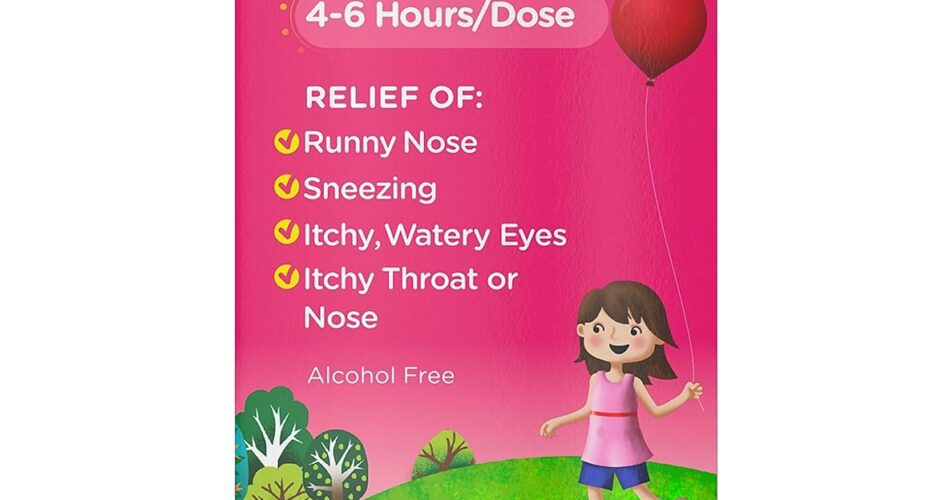Introduction
Dairy allergies can be a real pain in the stomach for those who suffer from them. That glass of milk, the cheese on your pizza, or that scoop of ice cream – they all become landmines when you have a dairy allergy. You know the drill: the bloating, the cramps, the discomfort – it’s no picnic. But what if I told you there might be a solution, something as commonplace as Benadryl? That’s right, we’re diving deep into the question: Does Benadryl help with dairy allergy?
In this comprehensive guide, we’ll explore the ins and outs of dairy allergies, the role of Benadryl, and what science has to say about this potential remedy. So, if you’ve been pondering this question or struggling with your dairy allergy, read on!
What Exactly Is a Dairy Allergy?
Before we tackle the big question, let’s start with the basics:
A dairy allergy is when your immune system goes bonkers in response to proteins found in milk and dairy products. This can trigger a range of not-so-fun symptoms, such as:
- Hives: Those pesky, itchy, and often swollen red welts on your skin!
- Gastrointestinal issues: Think stomach cramps, diarrhea, or nausea!
- Respiratory problems: Coughing, sneezing, or even difficulty breathing!
- Swelling: Sometimes, your lips, tongue, or throat might puff up like a balloon!
It’s your body’s way of saying, “Hey, I don’t like this dairy stuff.” Dairy allergies can manifest in various ways and vary in severity, from mild discomfort to life-threatening anaphylaxis.
Benadryl: A Quick Introduction
Alright, let’s talk about our potential dairy allergy savior, Benadryl. You’ve probably seen that little pink pill on pharmacy shelves or in your grandma’s medicine cabinet, right?
Benadryl is an antihistamine – a medicine that fights against histamines. Histamines are chemical troublemakers that cause all sorts of allergic reactions. They’re the ones behind the itching, sneezing, and swelling you experience when your body is unhappy with something (like dairy!). Benadryl steps in and tells those histamines to cool it, which can provide relief from various allergy symptoms.
The Benadryl and Dairy Allergy Connection
So, now that you know what Benadryl and dairy allergies are, let’s address the big question: Does Benadryl help with dairy allergy?
Short answer: It can help with some dairy allergy symptoms, but it’s not a magic bullet.
Long answer: Here’s the breakdown:
1. Itchy Skin and Hives
Benadryl to the Rescue?
When dairy triggers your immune system to unleash histamines, you can end up with some itchy skin, and the dreaded hives. This is where Benadryl shines! Taking Benadryl can help to:
- Soothe the itchiness
- Reduce the appearance of hives
- Make you feel a lot less like a human scratching post!
However, remember, it’s not tackling the root cause (your dairy allergy) but rather managing the symptoms.
2. Gastrointestinal Distress
Can Benadryl Calm the Storm in Your Stomach?
When your dairy allergy throws a tantrum in your stomach, you might wish for some magical relief. Benadryl might help you feel a bit more comfortable, but it’s not specifically targeting your digestive system. It can:
- Ease nausea and queasiness
- Diminish stomach cramps
- Make those trips to the bathroom a little less painful
But, again, it’s not a cure for your dairy allergy.
3. Respiratory Troubles
Breathe Easier with Benadryl?
If your dairy allergy has you gasping for air, Benadryl can provide some relief here too. It can:
- Reduce sneezing
- Ease your cough
- Prevent your throat from closing up
For severe respiratory issues, always seek immediate medical attention. Benadryl is no substitute for professional care in life-threatening situations.
The Fine Print: Things You Should Know
Before you run to the medicine cabinet, here are some essential points to consider:
1. Drowsiness Alert
Benadryl is notorious for causing drowsiness. While this can be a godsend when you’re dealing with itching and discomfort, it’s not your go-to solution before, say, driving or operating heavy machinery. Make sure you know how it affects you before attempting any tasks that require focus.
2. Temporary Relief
Benadryl offers temporary relief from allergy symptoms, including those triggered by dairy. However, it’s not a permanent fix. To manage dairy allergies effectively, you’ll need to identify and avoid dairy products and possibly consult an allergist.
3. Consult a Healthcare Professional
If you’re unsure whether Benadryl is the right choice for your dairy allergy, or if your symptoms are severe, it’s essential to consult a healthcare professional. They can provide guidance and recommend the best course of action.
4. Personal Tolerance Varies
How your body responds to Benadryl can vary. Some people might find it extremely effective, while others may experience minimal relief. It’s a case-by-case situation.
Frequently Asked Questions (FAQs)
Now that we’ve covered the basics, let’s tackle some of the most common questions regarding Benadryl and dairy allergies!
Q1: Can Benadryl completely cure my dairy allergy?
A1: No, Benadryl cannot cure your dairy allergy. It can only provide temporary relief from the symptoms triggered by dairy consumption.
Q2: How should I take Benadryl for my dairy allergy symptoms?
A2: Follow the dosing instructions on the packaging or as advised by your healthcare professional. Usually, it’s one to two tablets every 4-6 hours as needed.
Q3: Are there any side effects of taking Benadryl for dairy allergies?
A3: Common side effects may include drowsiness, dry mouth, and dizziness. If you experience severe side effects, contact a healthcare professional immediately.
Q4: Can I use Benadryl for a severe dairy allergy reaction?
A4: While Benadryl can provide some relief, it is not a substitute for immediate medical attention in severe cases. Call 911 or visit the nearest emergency room if you experience anaphylaxis or severe respiratory distress.
Q5: Is Benadryl safe for children with dairy allergies?
A5: It’s crucial to consult a pediatrician before giving Benadryl to children. They can determine the appropriate dosage and whether it’s safe for your child.
Conclusion
So, does Benadryl help with dairy allergy? Yes, it can offer relief from some dairy allergy
symptoms, but it’s not a cure-all. It’s like a trusty sidekick in the battle against your dairy allergy villain. It won’t make dairy suddenly safe for you to consume, but it can help you deal with the aftermath of an accidental encounter.
Remember, while Benadryl can be a game-changer for itchiness, hives, gastrointestinal issues, and respiratory problems, it’s not a permanent solution. It’s essential to identify and avoid dairy products to manage your dairy allergy effectively.
When considering Benadryl for your dairy allergy, always follow these guidelines:
- Read the Label: Carefully read the instructions and dosage information on the packaging. If you’re unsure, consult a healthcare professional for guidance.
- Be Aware of Side Effects: Keep an eye out for potential side effects, especially drowsiness. Don’t engage in activities that require focus and alertness until you know how Benadryl affects you.
- Seek Professional Advice: If your dairy allergy symptoms are severe or if you’re uncertain about using Benadryl, consult a healthcare professional. They can provide personalized guidance.
- Children and Benadryl: For children with dairy allergies, always consult a pediatrician before administering Benadryl. They will determine the appropriate dosage and whether it’s safe for your child.
In the end, Benadryl can offer relief from the discomfort caused by dairy allergies, but it’s not a long-term solution. It’s always a good idea to have a conversation with your healthcare provider about the best approach to managing your dairy allergy. Remember that everyone’s body reacts differently, so what works for one person may not work the same way for another.
So, the next time you’re faced with an unexpected dairy encounter, you might want to have a box of Benadryl on hand. It’s like a superhero’s utility belt, ready to help you tackle those dairy allergy symptoms. But always remember, your healthcare provider is your real hero when it comes to managing your allergies safely and effectively.
In the grand scheme of things, while Benadryl can be your ally, understanding your dairy allergy and taking the necessary precautions to avoid dairy products remains the most crucial aspect of dealing with this condition. And for those occasional slip-ups, Benadryl will be there to lend a helping hand, or in this case, a soothing pill.
So, there you have it – the lowdown on the “Does Benadryl help with dairy allergy?” question. It’s not a cure, but it’s a comforter. Be vigilant, consult your healthcare professional, and keep that Benadryl handy just in case!
Dairy allergies might be a tough nut to crack, but with the right information and the right strategies, you can navigate them with confidence and peace of mind. Whether it’s a scoop of dairy-free ice cream or a Benadryl in your pocket, you’ve got options to make your dairy allergy journey a little smoother.
Remember, you’re not alone in this. Many people face dairy allergies, and there’s a growing variety of dairy-free options available to make life easier. Embrace the alternatives, take care of yourself, and don’t forget to bring your friendly neighborhood Benadryl along for the ride!





